Open on Evenings & Holidays! Extended And Flexible Hours!
* DNA Testing for Immigration
* Paternity Testing
* Deceased Paternity
* Forensic Testing & Much More!
Open on Evenings & Holidays! Extended And Flexible Hours!
* DNA Testing for Immigration
* Paternity Testing
* Deceased Paternity
* Forensic Testing & Much More!
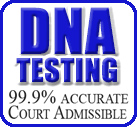
AB DNA Testing Services
Phone: 718-701-0292
We offer New York’s BEST AND MOST AFFORDABLE DNA TESTING with a full range of services to verify family relationships.
We specialize in the following types of DNA tests:
• Paternity • Maternity • Grand-parenting • Sibling Relationship • Biological Relationship Studies • Twin Studies • Deceased Paternity • Forensic Testing • Child Identity Testing • Family Tree and Genealogy Testing
* EVEN LOWER PRICE THAN HOME DNA KITS.
* NO HIDDEN COSTS – Collection kits, photography, and fingerprinting all included.
* 99.9% (OR GREATER) ACCURACY.
* FINAL RESULTS ARE PRESENTED IN A NOTARIZED DOCUMENT IN A CLEAR AND CONCISE FORM.
* ALL RESULTS ARE COURT ADMISSIBLE.
* OVER 15 YEARS EXPERIENCE.
* NO REFERRALS NECESSARY!
* FAST AND PAINLESS SAMPLE COLLECTIONS, USING BUCCAL (Mouth) SWABS.
* SPANISH, PORTUGUESE, FRENCH AND CREOLE SPOKEN.
* PLEASE SEE TRANSLATIONS OF OUR SERVICES IN: SPANISH, BENGALI, URDU, CHINESE AND NEPALESE!
Located In Woodside Queens, easily reachable from all boroughs (Queens, Manhattan, Brooklyn, Bronx and Staten Island), Westchester, Nassau and Suffolk.
We can also schedule DNA tests at our network of collection sites throughout New York city.
Call us. We have found that in many cases, our personalized service can overturn your denial. We will call the passport office or immigration dept. for you and plead your case over phone verbally.
90% of time they will revoke your denial, as long as you get the required information to them quickly.
AB DNA TESTING SERVICES
AB DNA Testing Services © |
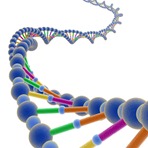 |
718-701-0292 We are open on evenings & holidays! |
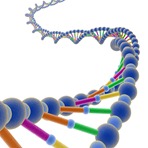 |
Legal Paternity Test: $349
NYS compliant testing only. NO HIDDEN COSTS OR EXTRA FEES.
We do not provide prenatal DNA testing in-house. If you need prenatal testing, we can refer you to a provider we’ve worked with previously:
Prenatal DNA Testing NYC.
AB DNA Testing Services offers a broad range of DNA testing options using certified, accredited laboratories and verified collection procedures.
Our DNA is more than just a biological blueprint — it’s a living record of our ancestral history. Through family tree and genealogy DNA testing, people are discovering where they come from, uncovering long-lost relatives, and filling in missing branches of their family trees. Whether you’re beginning your ancestry journey or seeking to complete your genealogy research, DNA testing is one of the most powerful tools available today.
In this guide, we’ll explore how genealogy testing works, what you can learn from it, and why it’s becoming a popular choice for families in Queens and across the world.
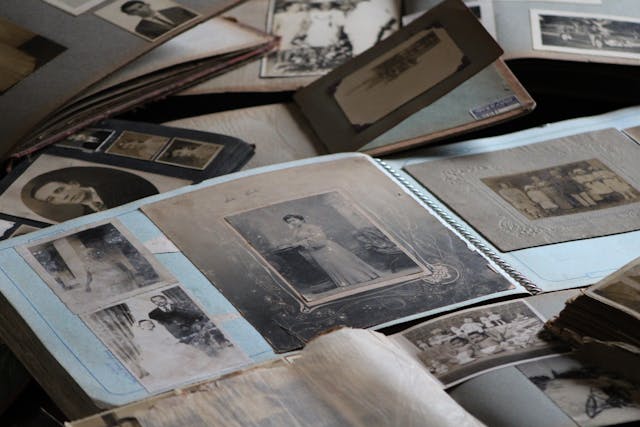
Genealogy DNA testing is a type of genetic analysis that reveals your ethnic origins and familial connections. It looks at markers within your DNA that are passed down from generation to generation. There are three primary types of DNA used for genealogy testing:
Genealogy DNA testing allows you to build your family tree, verify relationships, and discover ancestral roots that might not be recorded in any paper trail.
Genealogy DNA tests provide an ethnic breakdown of your ancestry, often divided into percentages by geographic regions. This can uncover connections to:
Many ancestry DNA services include access to a matching database where you can find genetic relatives — including cousins, siblings, and even parents you may not know. These connections can open the door to powerful family reunions and life-changing stories.
DNA testing helps confirm the accuracy of your family tree by supporting or disproving relationships. It’s especially useful in cases where adoption, unknown parentage, or family secrets may have left gaps or inconsistencies.
By documenting your ancestry through DNA, you create a legacy for future generations. Your children and grandchildren will have a clearer understanding of their roots, culture, and identity.
While genealogy testing is primarily for ancestral discovery, some services also offer health reports based on your genetics. This can give insight into inherited traits and potential health risks, bridging the gap between your family’s past and your health future.
Genealogy DNA testing is simple, convenient, and completely non-invasive. Here’s how it works:
As with any DNA testing, privacy is a valid concern. When choosing a genealogy testing provider, make sure they offer:
At AB DNA Testing Services, we take your privacy seriously and ensure that your results are handled with full confidentiality and transparency.
When it comes to family tree and genealogy DNA testing, not all services are created equal. Look for a provider that offers:
At AB DNA Testing Services, we offer reliable, scientifically backed DNA testing that helps you uncover your roots and connect with your heritage. Whether you’re just starting your genealogy journey or adding to a well-researched family tree, we’re here to help you make sense of your past — and preserve it for future generations.
Explore your heritage with confidence and clarity. Call or visit us today to learn more about our genealogy and ancestry testing services.
AB DNA Testing Services ©
Phone: 718-701-0292
Let us help you uncover the roots of your family tree. Your story is in your DNA — and it’s waiting to be discovered.
Can DNA testing confirm if someone is your sibling or grandparent? Establishing family relationships can sometimes be a complex journey, especially when direct parental DNA is unavailable. In these situations, sibling and grandparent DNA testing becomes a powerful alternative. These tests help determine biological connections by analyzing shared genetic markers — often serving as the key to unlocking answers in legal, personal, or immigration matters.
If you’re in a situation where you need to confirm siblinghood or grandparent relationships, understanding how these DNA tests work and when they’re needed is essential. In this guide, we explore what these tests are, how accurate they can be, and why choosing an experienced DNA testing provider matters.

Sibling DNA testing is used to determine whether two or more individuals share one or both biological parents. There are two primary types of sibling testing:
This type of test is often requested in cases where the alleged parent is deceased, unavailable, or unwilling to participate in testing.
Grandparent DNA testing is designed to determine whether an individual is biologically related to one or both grandparents. It is commonly used when a parent is not available for testing, allowing the grandparent(s) to serve as a proxy for establishing a familial link.
There are two variations:
In legal situations, such as custody or inheritance disputes, this testing may provide critical evidence in determining family relationships.
These tests can be used in a variety of personal and legal contexts:
The testing process for siblings and grandparents is straightforward and non-invasive:
While sibling and grandparent DNA tests are highly useful, they rely on statistical probability rather than definitive match/no-match results like parentage tests. Accuracy can vary depending on:
That’s why it’s important to work with a laboratory that can advise you on the most accurate testing strategy for your specific case.
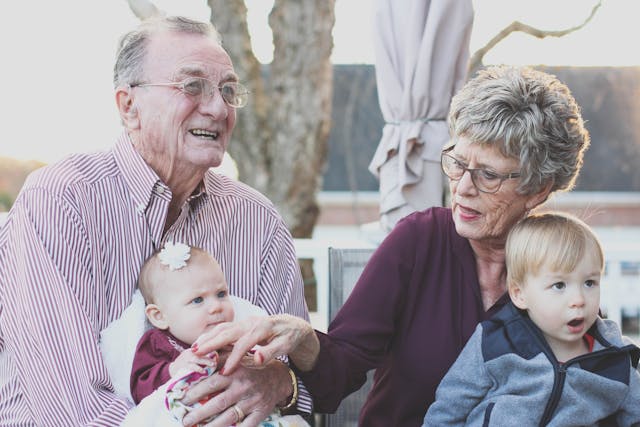
Like other DNA tests, sibling and grandparent DNA testing is available in two formats:
At AB DNA Testing Services, we specialize in accurate and compassionate DNA testing for complex family relationships. Whether you need a test for legal, immigration, or personal purposes, we provide:
Have questions about whether sibling or grandparent DNA testing is right for your situation? We’re here to help.
AB DNA Testing Services
718-701-0292
Call today to schedule a consultation. Our experienced team is ready to help you confirm the family connections that matter most — accurately, confidentially, and professionally.
What will family tree DNA testing services tell you? For many people, learning about their family history is a lifelong passion. There are many ways to research one’s family tree, including traditional methods such as poring over old documents and talking to relatives. However, in recent years, DNA testing has become an increasingly popular way to learn more about one’s ancestry.
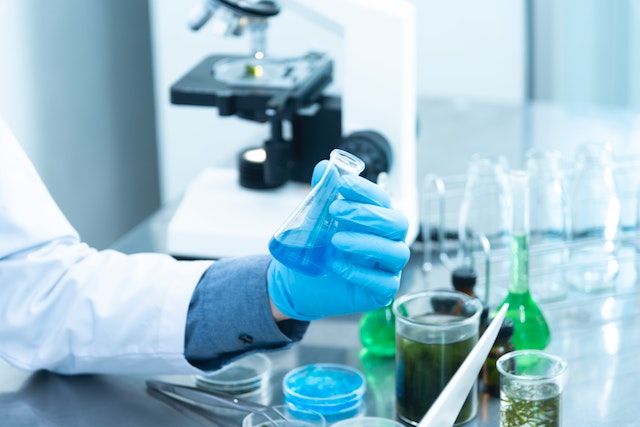
DNA testing works by comparing the DNA of the individual being tested to the DNA of people who have submitted their DNA to a database. If there is a match, it is likely that the two people are related.
There are two main types of DNA testing:
There are many benefits to DNA testing for genealogy, including:

If you are considering getting a DNA test for genealogy, there are a few things you should keep in mind:
If you are considering getting a DNA test for genealogy, contact AB DNA Testing Services © today. We are a reputable DNA testing company that offers a variety of DNA testing services for genealogists. We can help you to learn more about your family history and build your family tree.
AB DNA Testing Services
63-11 Queens Boulevard
Woodside NY 11377
718-701-0292
Family DNA testing is quite common, especially as it’s the perfect answer to all your family-related questions. Some people get this DNA test to kill their curiosity, and some have to do it for their documentation. The court might be demanding it, or your immigration and visa officer might request it. DNA testing helps confirm biological maternity, paternity, and your other family relationships. Families that consist of mixed races or those that don’t have proper documents usually get this. There are different types of relationship DNA testing. To learn more about family DNA testing, read further below.

(source)
The purpose of a maternity test is to determine your biological mother. Every human being inherits half of their DNA from their biological mother and the other half from their biological father. A maternity DNA test proves if the mother has the same genes as the child. If she doesn’t, then it is a clear answer that she isn’t the biological mother. You may not need this test if you’re already getting a paternal test.
You can easily determine the relationship between your siblings through a family DNA test. People carry out Sibship tests when they want to find out their relationship with another person. This DNA test works regardless of sex. You can also find out whether they’re your full or half-sibling. If two siblings share the same DNA, then the genetic marker should be at least 50%. For half-siblings, the marker is at 25%.
According to these markers, lab technicians can then determine the chances if the siblings share the same DNA. A sibling DNA test isn’t 100% accurate as it’s hard to determine with certainty. However, the results are always on a likelihood scale.
When it comes to paternity testing, it has a lot to do with the Y chromosome. Y chromosome passes on to males from a father to a son. With the help of these tests, you can determine if two men are from one paternal line. This line consists of siblings, cousins, uncle/nephews, and others. Even though this test links to a specific family line, it is still not very accurate. For example, it doesn’t have the ability to distinguish between brothers, paternal sons, cousins, and grandsons.
The samples from males go through polymorphic sites and then are compared. If the males share a common Y chromosome and are from the same paternal line, the test will come out positive. DNA paternity testing is around 100% accurate if conducted under the right procedure. The male handling has to be very effective when proving paternity test results.
You can also determine the biological relationship with your cousins, uncles, aunts, and grandparents through family DNA testing. These tests use DNA identification technology. Most of the results for this type of test occurs on the basis of likelihood. Therefore, there is a slight chance of an inconclusive result.
Family DNA testing also helps with many official requirements and documents. These tests can also be for health purposes, knowing if you’re prone to a life-threatening disease. Mentioned below is the reason why you would need to get a family DNA test:
Surrogacy pregnancy may require testing, especially if the biological mother wants to confirm if the child is still hers. This is very common in gestational surrogacy cases. The DNA testing for this case will usually take place after the delivery of the baby. On the other hand, you can also carry out a prenatal test.
The USCIS has not made DNA testing mandatory. However, if there is no proof of the biological relationship between the people sponsoring you, there are further steps. The Visa counsel will advise you to get a family DNA test to gather more accurate proof. These tests have nothing to do with making the immigration process faster. All it does is remove any breaks and unanswered questions to get the process going.
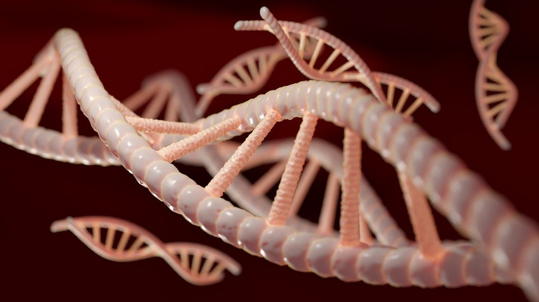
(Source)
If a mother wants to put her child up for adoption, then there will be a maternity test. Orphanages usually conduct these tests to prove that the mother is the biological mother of the child.
You can also achieve a family DNA test for your own curiosity, especially when you haven’t got the right answers or documented proof. DNA tests bring you one step closer to finding out your roots if you’re not sure of them.
DNA testing surely does helps prove family relationships to a certain extent. That is especially the case if they are your immediate families like your mother, father, and siblings. You may need this test for different purposes. Therefore, if you plan on getting one, get in touch with AB DNA Testing Services in New York.
Call Today:
AB DNA TESTING SERVICES
718-701-0292
Hablo Espanol
How does DNA work in your family tree? Many people choose to try DNA testing when they are not sure about the history of their family. You can opt for DNA Testing when your family tree is incomplete, and the information you have is not enough. DNA testing may help you overcome current obstacles to researching your family tree and background. Moreover, it helps you discover lost relatives in the process.
To cross all the barriers, a genealogist may use traditional research methods at the start and try various techniques. Along with all the other methods for finding the family tree, genealogists might also try DNA testing.
You can use three popular DNA testing techniques to find out your family tree. Various organizations, such as AB DNA Testing, provide lists for matching DNA. These lists can help you find your relatives and complete your family background. However, with so many options for DNA testing, you might not know which method you should use.
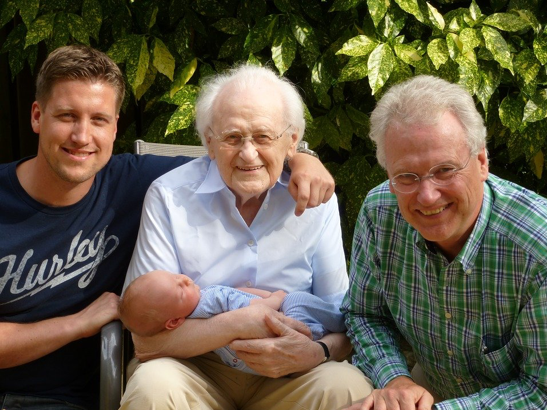
(Source)
After completing your DNA test, you can follow various methods for removing the problems in finding your family. Here are some methods that you can try along with your DNA test.
If you are willing to find your parents or grandparents, you should sort your DNA matches into groups. Many organizations also help you sort your DNA matches to map out your family tree easily. If a group has the most matches, it means that they have the same ancestors.
Now compare the family trees of these matches, find the groups connecting to you, and list them down. By listing them down, you can find your relative. If you find any ancestors appearing in different family trees, they could be common between you and your possible relative.
When you are researching a common ancestor, you need to look for the places and dates matching the information you already have. This can bring you even closer to your close relatives. You can ask your living descendants to take the DNA test.
If you don’t know some relatives due to migration or immigration, missing records, or change of name, you can lead your new relatives through DNA and find their locations and surnames. You track down clues with the information you get from your possible relatives. First, you should locate and identify your ancestors’ descendants through their DNA (if they had a DNA test. If they never had their tests, you can ask them to do so).
Various websites offer you common or shared features to identify different DNA matches and connect with your ancestors. Now you should review the matches of the other descendants and look for their trees. Search for people, their locations, and surnames matching the information you already have about your ancestors. Now search for those relatives and ask them about your ancestors.
If your records are missing, burned, or were never created, you can find your ancestors by hypothesizing who it could be. You can also use your DNA to further confirm your relationship with your possible relative.
You can start by searching for your ancestors and identify every possible relative. Now locate the living descendants of your ancestors and the ancestors of your possible relatives. You can get a better idea by comparing your descendants’ DNA and the descendants of your possible relatives. If both their DNA matches, then you are on the right track.
Once you identify the DNA matches that relate with your ancestors, you can contact those matches and discover more about your family lines. If your ancestors were recently alive, they could also share some living memories of your descendants. Their memories can further help you track relevant information or records. If you are in luck, they might have your family tree and any other information.
If your match does not have a family tree or any other information, don’t lose hope yet. You both can still work together and find more about the ancestors that you both share. By working together, you can find more information. There are various websites relating to the family tree where you can upload your family background so other people can also get their ancestors’ track.

(Source)
Various websites can help you find your ancestors. Before that, you need to go through your DNA testing so that your DNA can work as a source. AB DNA Testing can help you in this regard. Our team of experienced and professional technicians is some of the best in their fields. They can help you connect with your ancestors through various DNA tests.
AB DNA TESTING
63-11 Queens Boulevard
Woodside NY 11377
Call Today
718-701-0292
Do DNA Tests Prove Family Relationships? A DNA or Deoxyribonucleic acid is a biological molecule present inside our body. It contains two polynucleotide chains that twist and coil around each other to form a double helix looking structure. You could also say that it resembles a circling ladder. This molecule carries a genetic code which dictates your development, growth, characteristics, functioning, abnormalities and abilities.
The DNA molecule comprises of nucleotides, each symbolized by the following letter, A, T, C or G. Their names are Adenine, Thymine, Cytosine and Guanine. These nucleotides form pairs with each other. A chromosome, which is a long DNA molecule, consists of these pairs linked to each other to form a double helix structure.
A DNA test commonly confirms family relationships. This is a more accurate application for DNA tests because an offspring inherits a lot of the DNA material from their parents. Due to this, laboratory tests are able to compare their DNAs for similarities and make appropriate confirmations on their biological relationships.
The process of conception requires the father’s sperm cell to fuse with the mother’s egg cell to form a fertilized egg. This fertilized egg or the zygote consists of a complete set of DNA molecules that the egg cell and sperm cell contribute equally. The zygote then divides and multiplies to form an offspring, which contains DNA material from both their parents. It is a significant reason why DNA tests are valid for proving family relationships.
As mentioned earlier, every multiplication of the cell will have DNA that shares half properties of the father’s DNA and half of the mother’s DNA. Testing DNA for biological relationships is a process, in which scientists try to find special locations in the human DNA that contain specific DNA sequences. The scientists will identify these sequences as markers, which display repeated patterns of the genetic coding. Your DNA has two sets of markers, one from the maternal side and the other from the paternal side. The paternal DNA test uses these markers to identify and confirm a person’s paternity.
Scientists can also use these markers to create a unique genetic profile of an individual. This is possible because of the repetitive nature of the genetic code. Creating a unique genetic profile of an individual helps the scientist to identify paternity, since an individual’s genetic profile reflects where they came from.
Children get 50% of their DNA from both their parents. This makes it possible to test maternal relationship without having to test the father. Just like the father, a person will share 50% of the DNA with their mother. The procedure and method to determine this will be the same.
DNA tests to prove biological relationships like siblings or grandparents are similar. This test also uses the help of genetic markers to look at similarities between DNA samples. The percentage of similarities between genetic markers indicate how likely they are to be biologically related. Full siblings share 50% of the DNA on average, while half siblings share 25% of the DNA. Even grandparents will share 25% of the DNA with their grandchildren.
A DNA test for genealogy is a laboratory test that studies a person’s genome in order to identify their genealogy. For people who don’t know, genealogy is the study that enables genealogists to study a person’s family history, lineage and ancestral roots. You can also use DNA tests to track back your family tree. Tracking back your ancestral roots can give you a scarce idea about the migration patterns about your ancestors. Thus, informing you about how the geographical locations might have influenced your genetic make-up.
DNA tests are now far more accurate and efficient than they were before. Getting your DNA tested can have a positive influence on your life. DNA tests reveal a lot about you, and could help you plan your life accordingly. Some of the benefits include:
Living with doubt can be exhausting and off-putting, especially if it concerns your biological relationships. A DNA test provides you absolute certain confirmations about your blood relatives, minimizing uncertainties to some extent.
A DNA test not only provides you with information on biological relationships, but also reveals loopholes concerning your health. These include inherited medical conditions that you are most susceptible of developing. By utilizing this information, you can plan your life accordingly to avoid certain inherited diseases.
You can certainly prove biological relationships with the help of a DNA test. Getting one is easy and accessible but the accuracy will depend on the proficiency of the lab. If you are interested in getting an accurate DNA test, visit AB DNA testing or dial their number at 718-701-0292.
Do you need family relationship DNA testing? DNA testing can confirm if two people are in relation with each other or not. When there is not enough evidence for the verification of your relationship with another relative, the immigration officer may suggest you go through the DNA test. In some cases, while immigrating to the US, you have to take the DNA test if your relative is sponsoring your immigration.
The process involves taking a few drops of blood of both, you and your relative, for verifying your relationship through genetic imprinting. If performed rightly, results are 100% accurate. Another method of collecting samples for DNA testing doesn’t even require the collection of blood. With the help of buccal swab, cheek cells from the inside of the mouth are taken from both the petitioner and the beneficiary.
Deoxyribonucleic acid or DNA is present in the entire organism inside every cell. It is the hereditary material. Most of the DNA is present in the nucleaus, and very few is in Mitochondria. It contains information about life, reproduction, and development. DNA is basically a sequence of code and it transfers from parents to their children. The data that scientists decode from DNA can tell a lot about the person and his or her family and relatives.
DNA can reveal your heritage through the information it contains. It also tells if you are having any risks of getting certain diseases. People go for DNA testing for a variety of reasons i.e. to check if they are carrying certain diseases that may pass on to their children, for diagnosis of genetic disorders, and to know if a person is or is not at risk of any genetic disease. For example, BRCA-1 and BRCA-2 contain mutations, which increase the risks of ovarian or breast cancer. An analysis can show if a person has signs of these mutations.
DNA testing also evaluates the information of the kinship. It is a powerful tool to confirm the biological relationship between two individuals. There are different types of DNA tests depending on the relationship:
Once you agree to take the DNA test, a primary care doctor, specialist, medical geneticist, or nurse practitioner may perform your test. To perform the test, a sample of skin, hair or blood is required. A sample of the cells inside your cheek can also be useful. The doctor uses a small cotton or brush swab to rub it inside your cheek to collect cheek cells. The sample is then sent to the technician who examines your DNA present inside the cell and studies the information that chromosomes encode. The laboratory then shares the results with either the doctor or with you directly.
DNA testing can be a great way to find diseases or threats of diseases in newborn babies. Doctor prick the blood from the baby’s heel. When the result is positive, doctors will share the results with the parents, but if the result is negative, doctors perform more tests to confirm the genetic disorders.
Before taking the test, you should know all the procedures, benefits, and limitations of the test. We can help you by performing a DNA test for you with a certified laboratory in New York City.
If you want to know more about the test, contact us at 718-701-0292. Our expert team will provide you with all the details you need and will help you through the process.
Do you need a DNA test for family relationships? DNA is a molecule that carries our unique genetic code. DNA tests help you confirm your biological relationship with parents, grandparents, aunt, uncle, siblings, or even half-siblings.
For example, if a grandparent wants to adopt their grandchild after the death of the child’s parents but wants evidence that the child is in fact their grandchild, they can determine it through a DNA Test.
DNA testing can also help you in legal matters from adoption to immigration.
DNA testing is versatile and can confirm your biological relationship with mother, father, siblings, uncle, half-siblings, and others. Some of the DNA tests are as follows.
This test helps in determining the relation of an individual with their parents. It is more important when the child paternity is in doubt, and a father is not accepting his own child. There are many techniques to test DNA paternity, like using ABO blood group testing, analysis of enzymes and proteins, or human leukocyte antigen. But the most reliable method is genetic testing.
This test helps in determining the biological relationship of siblings between two people. DNA sibling test also helps to determine the paternity of whether or not two individuals have the same father. This usually happens when the father is deceased or not present for the paternity test.
Two individuals who have the same parents are full siblings. But if only one parent is common between two individuals, they are half-siblings. There are three types of DNA sibling test based on the parental relationships.
If you’re a parent to a pair of twins, the most common question you get is if your twins are identical or fraternal. Parents mostly ask for this test when their babies’ features fully develop. The twin DNA test compares DNA profiles from each individual in a pair of twins. If they get a match, it proves that these twins are identical. To perform the test, parents must collect a painless buccal swab from both twins and send the sample to a laboratory. At the laboratory, researchers extract DNA from the sample to find a match.
This test compares a child’s DNA with that of their aunts and uncles to determine if they are blood relatives. If their DNA doesn’t match, it means the child’s alleged father is not the child’s biological father. Also, this test is not performed if the aunt and uncle are half-siblings of the alleged father.
An Avuncular test is performed for this matter. It gives accurate results, just like a paternity test. This test is usually performed when the father is nor present for a paternity test and seeks to confirm paternity through his siblings.
Grandparents test performed to confirm the paternity of a child. To get accurate results, laboratories suggest that both grandparents submit their DNA. There are two types of grandparent test, DNA analysis of single grandparent and DNA testing of both grandparents.
In both tests, the child’s DNA is compared with the grandparents’ to confirm a biological relationship.
This test helps in determine the biological relationship of a child and the alleged mother. It is particularly suitable for adopted children who want to locate their biological mothers. Similarly, it is helpful for mothers who want to find children they gave up for adoption years ago. Maternity tests help to provide proof in court. It is important for visa immigration and citizenship. It provides proof of the biological relationship between mother and child if you don’t have proper documentation.
DNA testing f is helpful whenever there are doubts about an individual’s relationship with their family members. Also, you can prove your statement in court with the help of a DNA test.
We can help you in this regard. We have the best technology and techniques for DNA testing. We provide various types of DNA tests to determine your relationship with children, parents, grandparents, and others. DNA testing Lab in Queens, NY, is AABB certified. You can visit our website or call us on 877-362-3200
DNA test is a potent and powerful tool for proving family relations. With the evolution of DNA testing methods, you can find not only the relation between the individuals but also how biologically close they are to each other.
DNA is a miraculous biomolecule, carrying all the genes of your body and passing it onto the generations ahead. Your DNA is a combination of your parent’s DNA. This way, you share most of your DNA to your parents, siblings, and close blood relatives.
DNA testing helps prove family relation in several cases. The common test for proving family relations are for father-child (paternity test), mother-child (maternity test), siblings, half-siblings, grandparent-grandchildren, paternal or maternal aunt, uncle, child.
There are many instances where you would need to use DNA test for proving family relations:
Conferring paternity is a very sensitive issue that can even change relationships. People may need a paternity test while going through a divorce where the paternity of the child is uncertain. Paternity test results identify the alleged person as the father of the child. This greatly helps in deciding the rights, duties, and custody of the child.
There are many cases where the identity of the father of the child is doubtful. The obvious reasons include pregnancy before marriage, extra-marital affairs, or worse rape. Such matters are very sensitive, and the DNA test results can disrupt family lives. However, important documentation and legal matters require an individual to have correct details of their birth and blood relation, especially regarding parentage.
There has been an increase in demand for Immigration DNA tests with the influx of immigrants to the USA. An immigration DNA test is necessary for confirming the biological relationship for immigration based on family reunification. The immigration department is most likely to ask for a DNA test if there is a lack of documentation or evidence regarding the applicant’s birth details. DNA test in such cases would clear any doubts or concerns regarding the relationship of the petitioner and beneficiary.
Advancements in DNA tests allow us to find or check the ancestral genealogical relationships through Ancestry DNA test. Many people are trying out ancestry tests and for some, the results can be very surprising or even shocking. With ancestry test, some people discover shocking revelations regarding their birth. Their ancestry test affects their family and relations. They either qualify for an adoption case or had a real father they did not know about.
With the data of results, people track down their actual family members or close blood relatives. Further DNA testing helps to confirm whether they have tracked the right family member or not. DNA tests are now helping people find out their family members, which they thought they either lost or never knew they had.
When you require a DNA test for proving family relation for whatever reason, the matter is itself very critical, and test results might raise further issues. Your DNA Test results should have no room for error. AABB DNA Testing Services provide highly accurate and court-admissible DNA test results only through AABB accredited labs.
Call us at 718-701-0292. AABB DNA Testing offers the best DNA testing services in NYC with prices less than the home DNA testing. Our DNA test results are binding proof of family relationships to all your paternity and immigration needs.